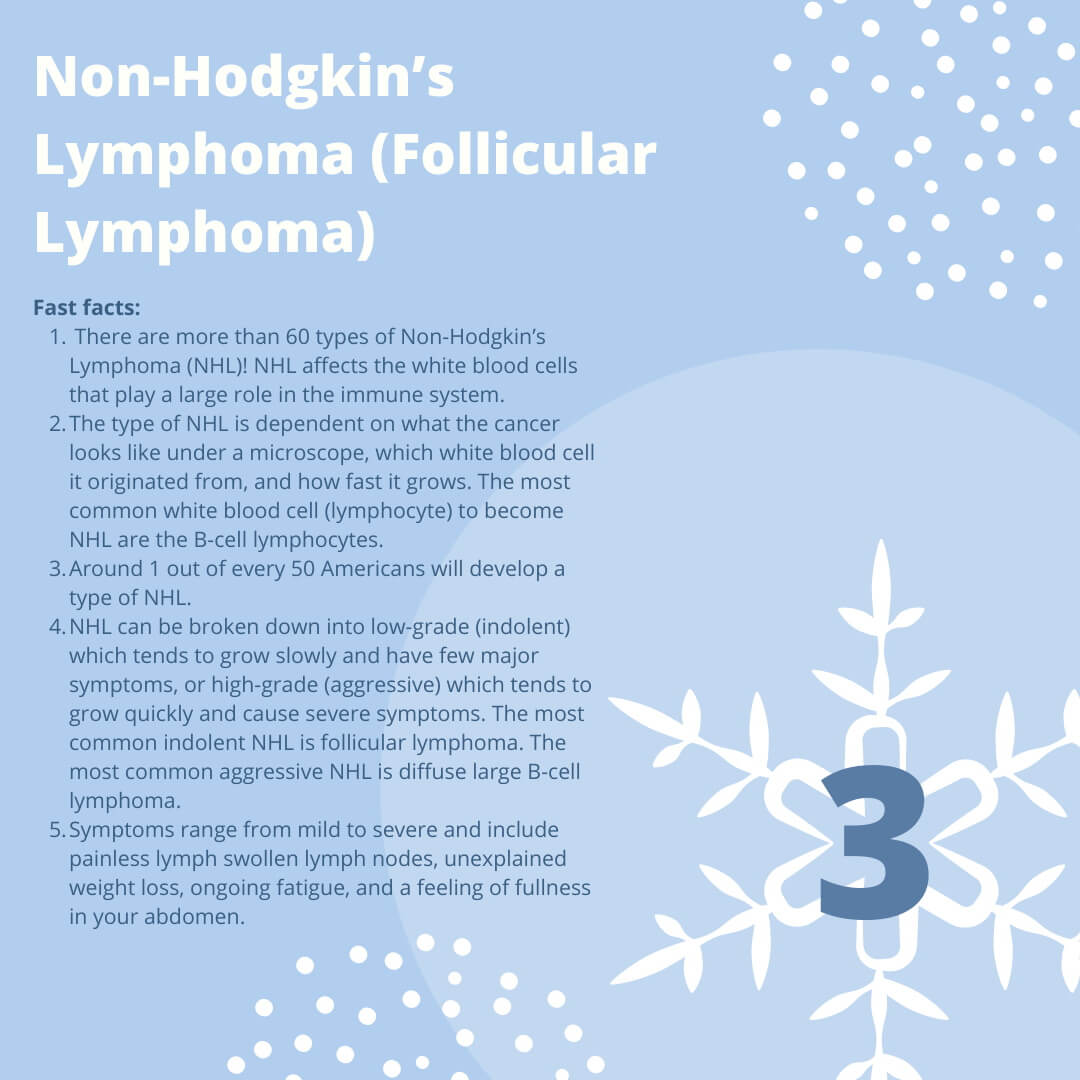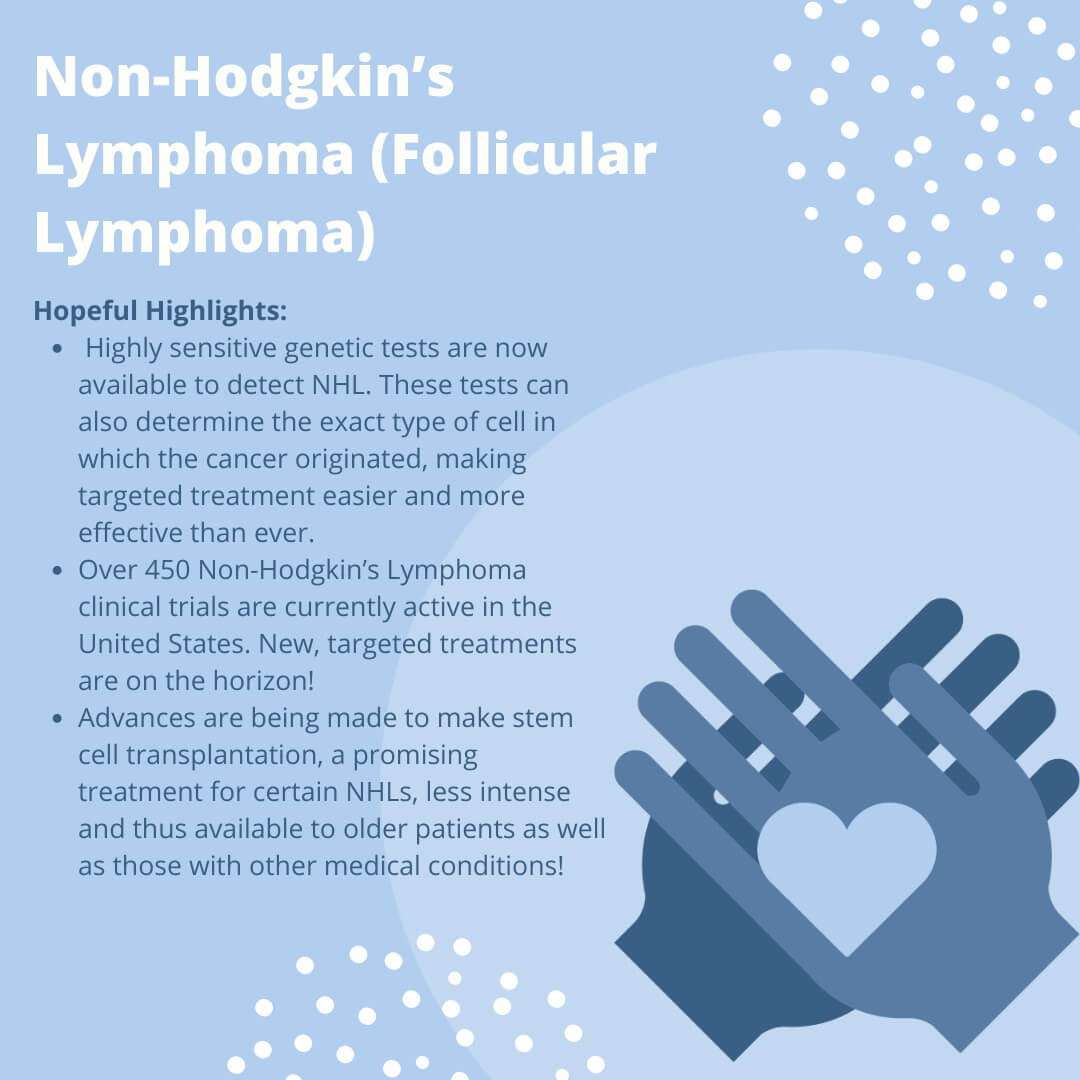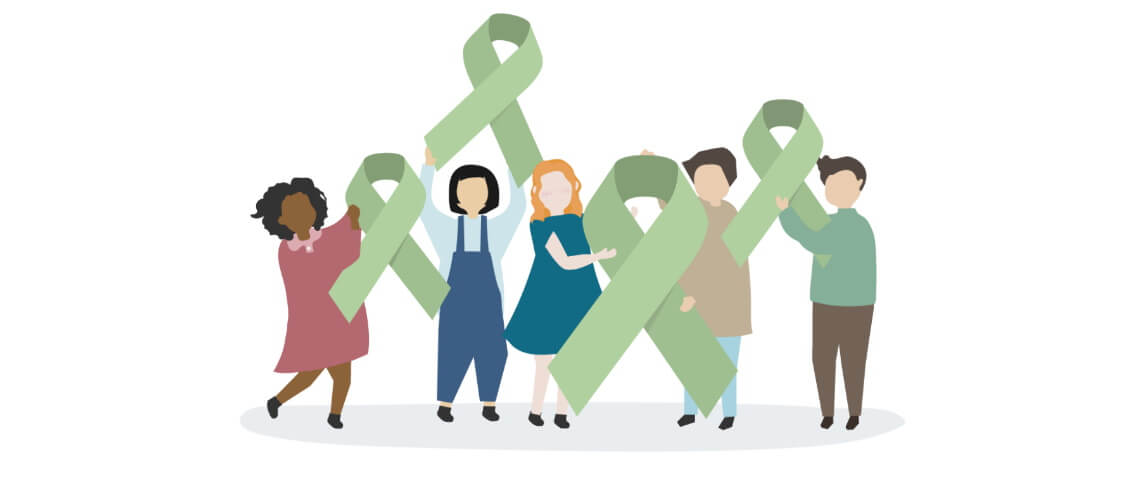Non-Hodgkin’s Lymphoma (Follicular Lymphoma)

- There are more than 60 types of Non-Hodgkin’s Lymphoma (NHL)! NHL affects the white blood cells that play a large role in the immune system.
- The type of NHL is dependent on what the cancer looks like under a microscope, which white blood cell it originated from, and how fast it grows. The most common white blood cell (lymphocyte) to become NHL are the B-cell lymphocytes.
- Around 1 out of every 50 Americans will develop a type of NHL.
- NHL can be broken down into low-grade (indolent) which tends to grow slowly and have few major symptoms or high-grade (aggressive) which tends to grow quickly and cause severe symptoms. The most common indolent NHL is follicular lymphoma. The most common aggressive NHL is diffuse large B-cell lymphoma.
- Symptoms range from mild to severe and include painless lymph swollen lymph nodes, unexplained weight loss, ongoing fatigue, and a feeling of fullness in your abdomen.

- Highly sensitive genetic tests are now available to detect NHL. These tests can also determine the exact type of cell in which the cancer originated, making targeted treatment easier and more effective than ever.
- Over 450 Non-Hodgkin’s Lymphoma clinical trials are currently active in the United States. New, targeted treatments are on the horizon!
- Advances are being made to make stem cell transplantation, a promising treatment for certain NHLs, less intense and thus available to older patients as well as those with other medical conditions!
More Details: Non-Hodgkin’s Lymphoma
Free Matching to Cancer Clinical Trials
- Your match report contains a detailed list of cervical cancer clinical trials that you may be eligible to enroll in to receive unique and nonconventional treatment. Standard treatment is not the only option.
- A patient advocate will review your report with you to answer any questions or concerns you may have and assist with enrollment if you decide to move forward with a trial.
- There’s no need to travel to a clinical trial site until the enrollment process is complete.
Our number one priority is creating positive outcomes for cancer patients. Let us help you today.


Comments
Comments are disabled for this post